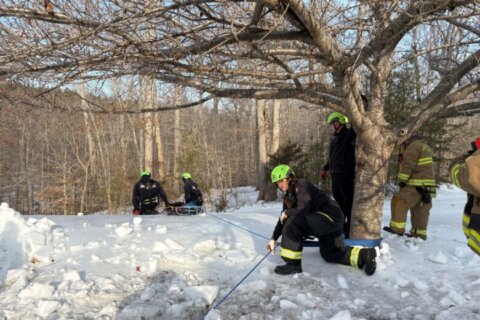The Prince William County Public School system has convened a task force to review its grading policy, making it the latest Virginia school system to evaluate how student work is graded.
Superintendent LaTanya McDade told the school board Wednesday that the task force includes teachers, administrators, central office employees and administrators. One of the goals of the review, McDade said, is to see how the county’s grading policy is being used because there may be inconsistencies from school to school.
Discussion of the policy review came as the board received an update on third-quarter student grades. The county currently uses a standards-based grading approach, according to Michael Neall, the school system’s director of research, accountability and strategic planning. The grading style prioritizes students’ mastering standards, and allows for grades to be changed if students demonstrate that they’ve mastered certain material.
The style also lets teachers override the average of a student’s final grade, if the teacher believes the student has improved in the mastery of the standards over the course of the school year, the county said in its presentation to the school board.
Board Chairman Babur Lateef said the county implemented standards-based grading several years ago, and that there has never been a review to see “how it’s been implemented, the fidelity and integrity of it across the division.”
The review comes as several other D.C.-area school systems have started examining their grading policies.
In Arlington, the public school system is proposing a plan that would let middle and high schoolers retake or redo some assignments and reduce the weight that homework has on a student’s overall grade. School leaders say the approach emphasizes equity. Fairfax County Public Schools, Virginia’s largest school system, is also currently reviewing high school grading policies.
“We can’t put all of the eggs in [grading policies] because I do think that there’s some norming that needs to be done around grades,” McDade said.
The task force recently started reviewing grading procedures, McDade said, looking at assessments and collecting data from schools. The next phase involves outlining potential next steps, including evaluating the full grading policy and regulation. Homework is part of the regulation that’s being reviewed.
“If we’re going to move the needle on student achievement, then we do need to really look into this,” board member Jennifer Wall said. “I would encourage us maybe to reach out to our university partners and researchers to help us.”
Some high school students, Wall said, aren’t doing homework because it’s only worth 10% of their overall grade.
“They’re gaming the system, as smart high schoolers do,” Wall said.
Board member Justin Wilk, meanwhile, said there are discrepancies in grading approaches from department to department and sometimes from teacher to teacher.
“If we could better standardize across the board, I think that would be something very helpful with overall grading and success with these students,” Wilk said.
Lateef called the review of grading practices “long overdue.”








